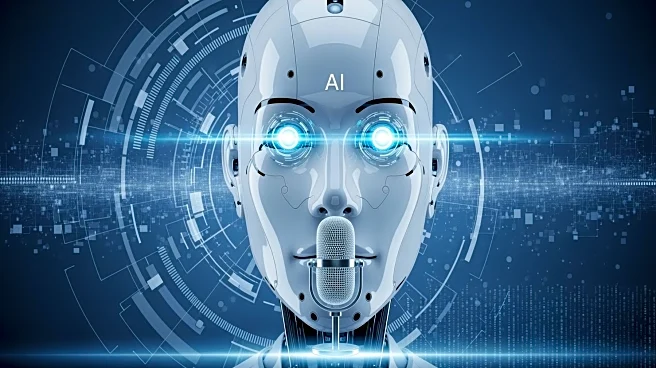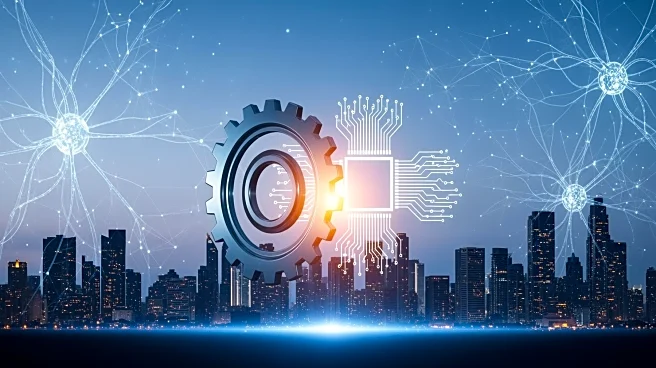What's Happening?
Channel 4 in the U.K. aired a special program titled 'Will AI Take My Job?' which explored the impact of automation on the workplace and the potential displacement of human workers by machines. The program concluded with a surprising revelation that the anchor,
who appeared throughout the broadcast, was entirely AI-generated. This stunt was designed to demonstrate the capabilities of AI in performing tasks traditionally done by humans, such as news anchoring. The program aimed to provoke thought and discussion about the future of work and the role of AI in various industries.
Why It's Important?
The debut of an AI-generated news anchor on Channel 4 underscores the growing influence of artificial intelligence in the media industry and beyond. This development raises important questions about the future of employment, as AI technology continues to advance and potentially replace human workers in certain roles. The use of AI in news broadcasting could lead to significant changes in how news is produced and delivered, affecting journalists and media professionals. It also highlights the need for discussions about the ethical implications of AI in the workplace and the potential consequences for job security and employment opportunities.
What's Next?
The use of AI in news broadcasting is likely to spark further debate about the role of technology in the media industry. Media companies may explore the potential benefits and drawbacks of incorporating AI into their operations, considering factors such as cost efficiency and audience engagement. There may also be discussions about the need for regulations and guidelines to ensure ethical use of AI in media and other industries. As AI technology continues to evolve, stakeholders will need to address the challenges and opportunities it presents for the future of work.
Beyond the Headlines
The introduction of AI in news broadcasting raises broader questions about the impact of technology on society and the workforce. It challenges traditional notions of employment and the skills required for certain jobs, prompting a reevaluation of education and training programs to prepare workers for an AI-driven future. The ethical considerations of AI use, including issues of bias and accountability, will also need to be addressed as technology becomes more integrated into daily life.














